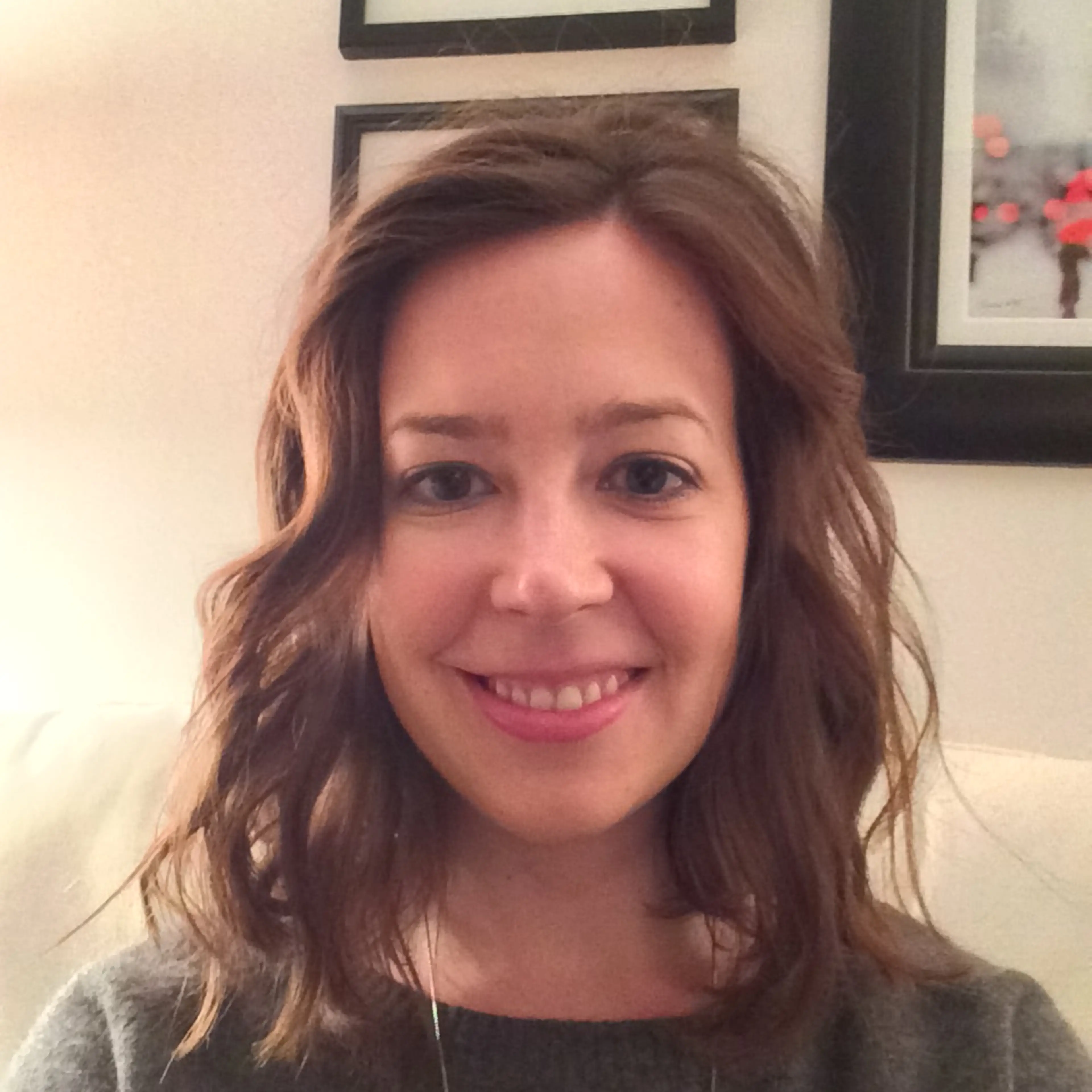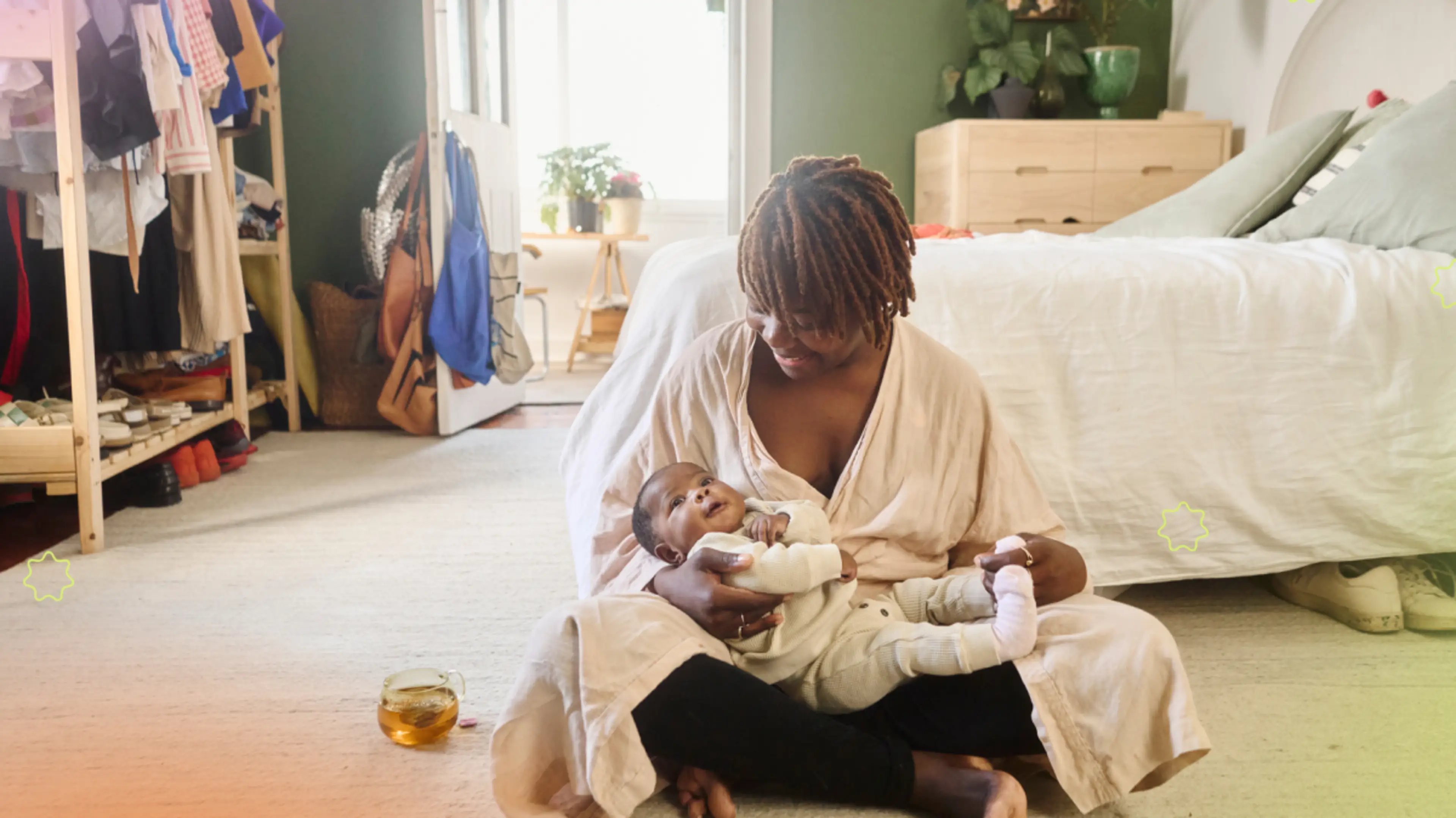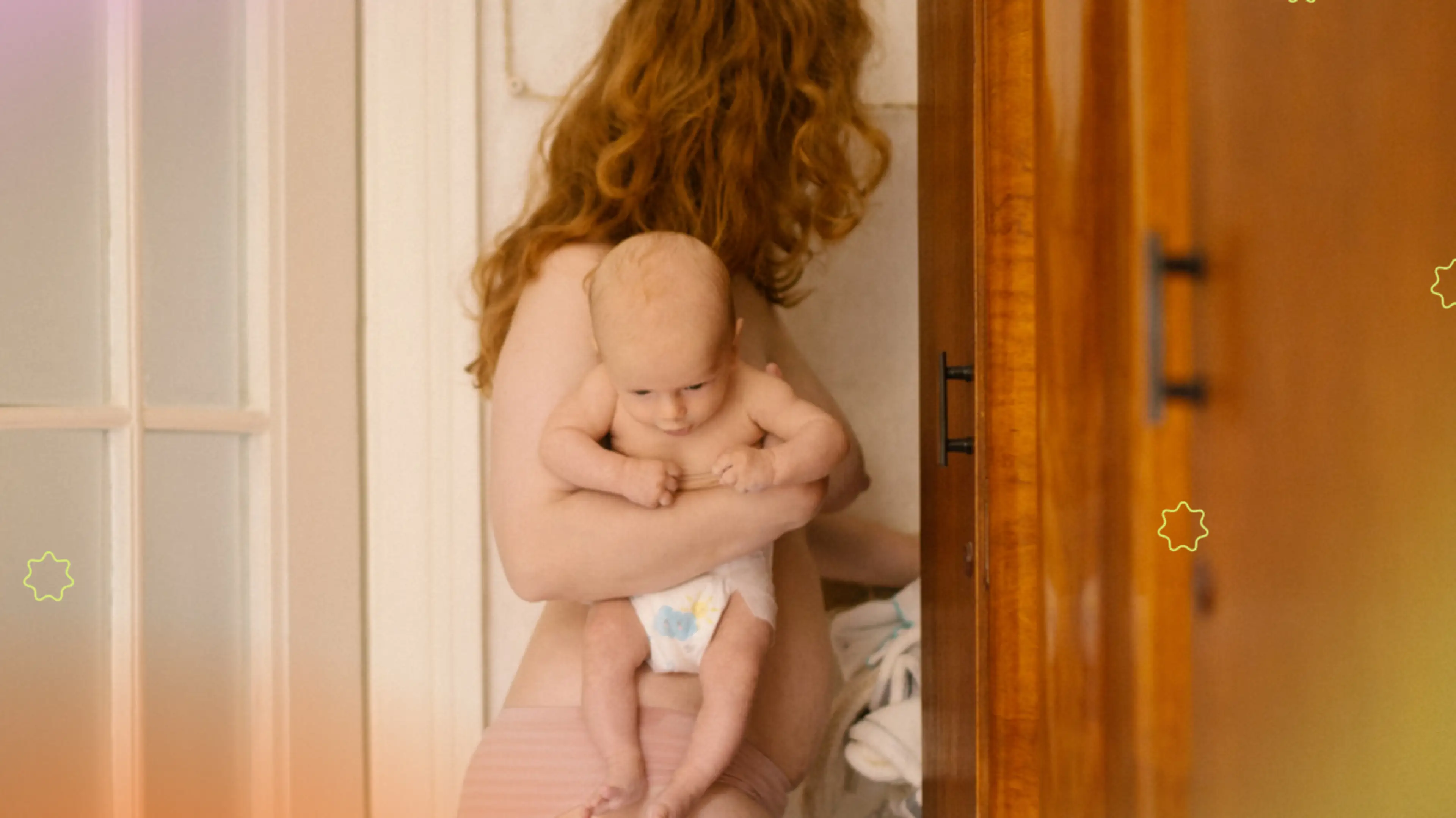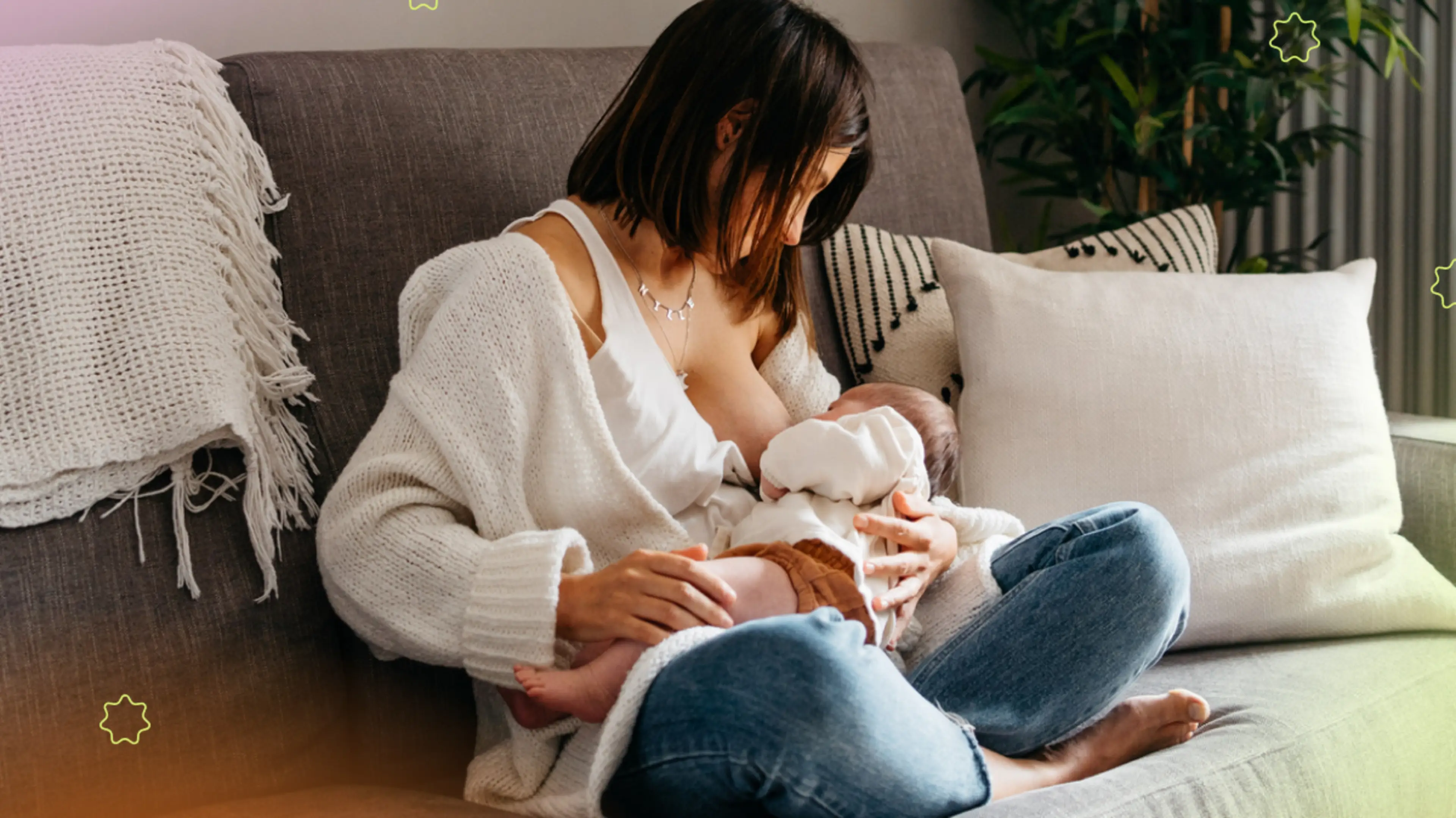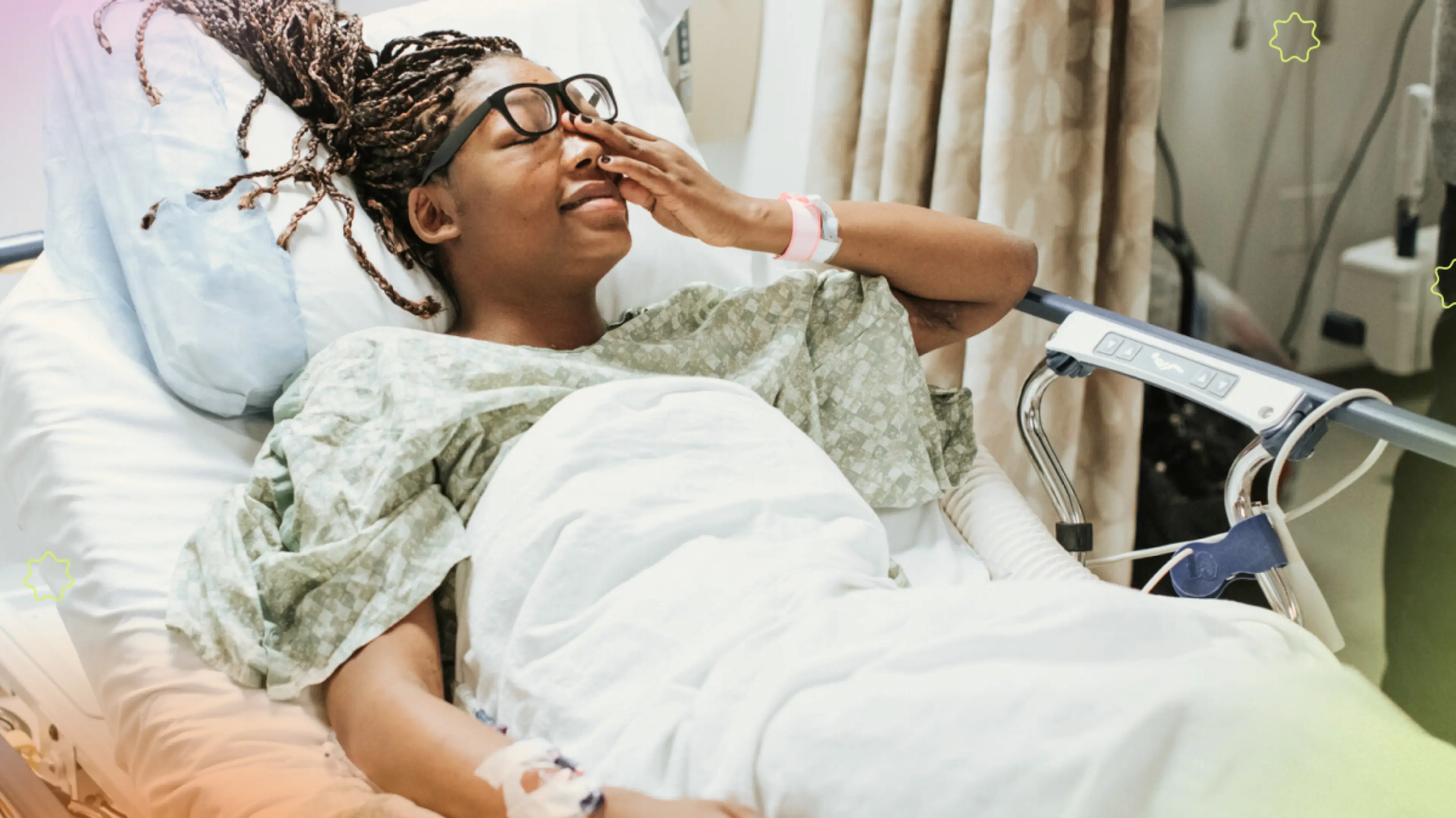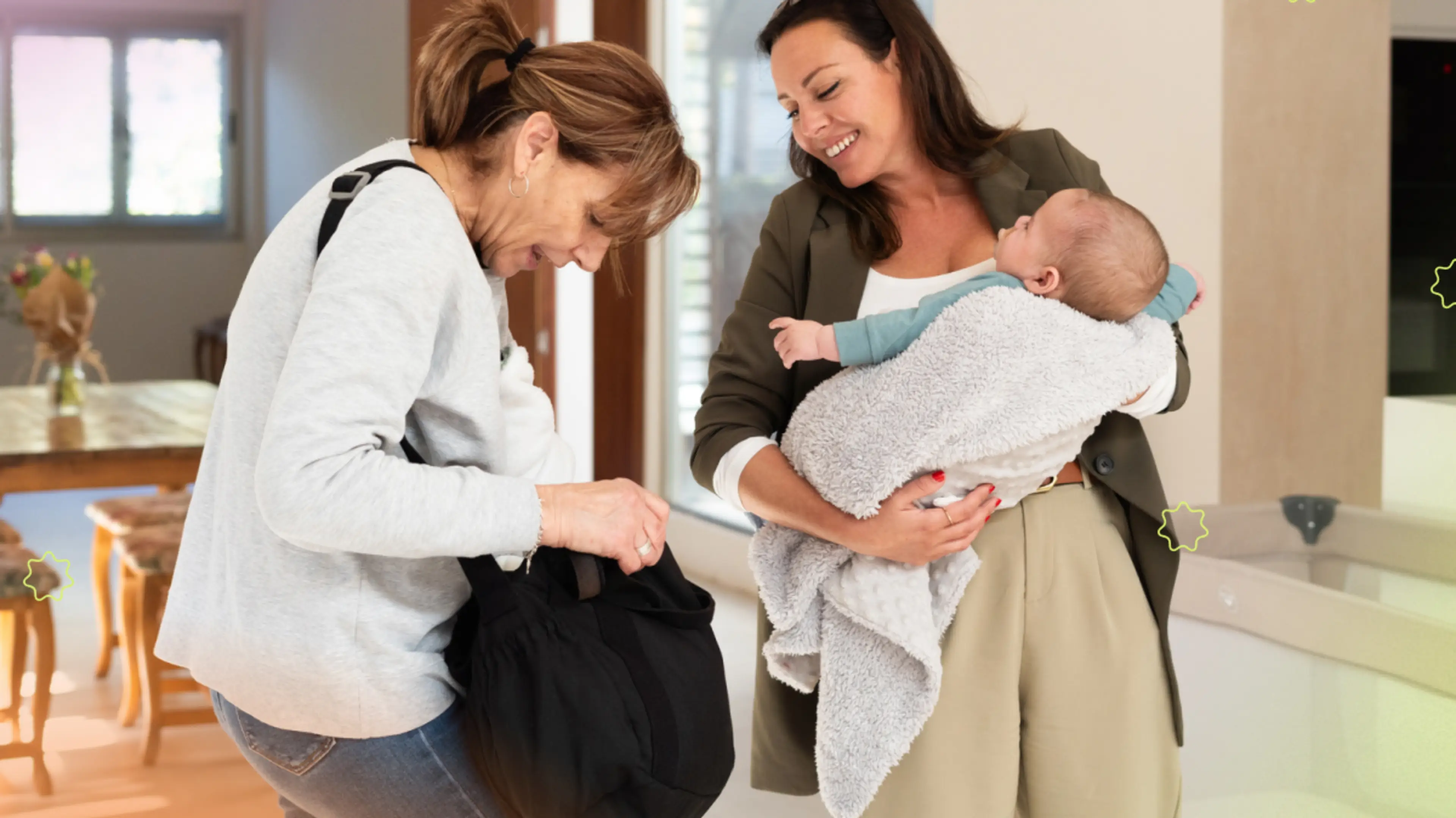Matrescence isn’t a new discovery—the term was originally coined in the mid-1700s—but the idea that there is a special term and even a science to describe the physical and emotional transformation of motherhood has been gaining a lot of attention recently. For many women, it’s empowering, even a relief, to learn that the total identity change that they’ve experienced after having a baby is a real phenomenon, and not just a figment of their wild postpartum hormones.
But others, like professor Anastasia Berg, hear talk of the big changes that first-time moms experience and think, “Huh? That’s not what happened to me.” In an excerpt from her new book, What Are Children For?: On Ambivalence and Choice, Berg questions the idea that motherhood is identity-transforming. “When I looked in the mirror, I sometimes saw a more tired person, one covered in more food, but never a new one,” Berg writes.
We wanted to know what Expectful readers experienced when they first became moms, so we asked: how did—or didn’t—having a baby change your identity? If you did experience a transformation, how quickly did it happen and in what ways? Did it surprise you? Their answers may surprise you.
Anonymous, 39:
It absolutely changed me. For the better, I should add! I resisted the identity change with my firstborn. None of my peers had kids, so I rushed back into life at 6 weeks postpartum—back to work, back to going out to music shows with my friends. Then I had my 2nd during the pandemic. My kids became my reason for striving at work and taking care of my health. I let my identity include "mom." I no longer care if it's lame that I want to be home for bedtime.
Lori, 27:
I think the best way to describe the identity change that happens with motherhood is not that I became someone else. My self just changed. The uniqueness of how I was created before I was born didn't get taken away when my daughter was uniquely created in me. I initially felt the pressure to be like other moms, like the role models in my life. But just like trying to fit into a new social group, if you try to be too much like the others around you, you'll end up being nobody at all. And conversely, if you bluntly cling to being whatever label you used to have, you become simply the label itself.
I jumped back and forth between both extremes and eventually settled comfortably somewhere in the middle. The things that make me a good mom are the same things that make me a good wife, a good employee, a good sister, etc. Motherhood does provide a change, but not into a different person. Just a different version of yourself. It's very much like a coming of age. Every adult used to be a child, but the journeys between the two stages are as unique as the people who traveled them.
Erica, 38:
My son just turned two and this highlights a struggle I’ve had feeling like I need to be a different person. I’m well aware that things are different, in so many ways. But what if I still want to be that person I was before, because I know she’s still inside of me?
Lauren, 39:
Aside from the obvious physical changes and some temporary postpartum depression and anxiety, the act of having a baby didn’t change my identity, but being a mom over the past seven months certainly has. There’s a shift in perspective and priorities that I believe will continue as she gets older.
I didn’t feel like a “mom” at first because I had no clue what I was doing and it took me several months to feel like I even deserved the title. But now that she recognizes me and is developing a personality, I’m settling into my new identity. For me, the transformation didn’t happen with her birth—it’s happening a little bit every day as I play the role of her mother.
Nikki, 29:
My identity and lifestyle did not change at all. My son has just become my life sidekick. We were back to work within a few days after delivery, and I was back to showing horses within six weeks. Both my husband and myself show heavily in our respective disciplines of showing horses, so at least one of us is gone nearly every weekend and our son typically stays with me. It’s minor modifications, like making sure I have his supplies ready to roll in the truck or trailer, having someone to watch him for a bit while I show my horse, or not going out every night with friends for dinner because he needs a little rest (but let’s be honest I probably need it more). He’s just become a part of me and who I am—he’s along for the ride.
Brooke, 32:
I don’t feel like I had an identity change. Honestly, when people say I’m a mom or someone calls me “mama” it feels weird because I don’t feel like that’s my identity. Thankfully I never had the experience of feeling like I lost myself in motherhood. Sure there are things that have gone on the back burner, but I know I’ll get back to it eventually. This is only a temporary time and I’ll find my way back.
The change in myself that I didn’t expect was my feelings/views towards my family. I still love them but the dynamic has changed. I have distanced myself quite a bit due to anxiety that has come up since becoming pregnant. I started to notice my beliefs and values were very different from my family’s. It then sent me down a path of reliving my childhood and questioning how I was raised. I began figuring out what I truly value and what I’d like my child to grow up learning. I’m hoping to feel more comfortable around them again, but for now, I keep my distance.
Caroline, 33:
I haven’t noticed much of a change and, at first, I found that really alarming. Everyone says everything changes the first time you see your baby, but that wasn’t the case for me. I was expecting this wave of emotion, but when that didn’t come I wondered if something was wrong with me. Yes, I loved my baby, but no I didn’t feel like I knew my baby. In the first few weeks everyone kept saying, “you know your baby best,” and that really annoyed me because I felt like I didn’t know the baby at all. We had just met! But now I find comfort in the fact that motherhood didn’t change me drastically. Going into parenthood I didn’t want to lose my sense of self and I really wanted to be a model for my kids that parents are not just parents but full people. So I’m glad that I still feel like myself.
Anonymous, 30:
My baby is 4 months old and I honestly still don’t feel like a “mom” or a parent. I always hated how women were immediately branded with the term “mama” the second they announced their pregnancy. For me, I still feel like myself just with this new person in my life that I love dearly. I feel more like a caregiver than I do a mom at this stage. Maybe that will change the older that he gets.
Lindsay, 36:
It absolutely changed my identity, but I also kept my job and I work full time, so my only identity isn’t “mom.” Don’t get me wrong, “mom” is the best identity. But sometimes you need a bit of yourself still that isn’t defined by your kids.
Anonymous, 42:
I found it isolating, consuming. No one gets it unless you have done it.
Kaitlyn, 27:
Becoming a mom changed my life and changed me, but for me, it wasn’t the birth of an entirely new person. While pregnant, I mourned the life I thought I was losing, and the person I was before. I was under the impression that, in order to be a good mom, I had to give up much of who I was to make room for the new life we had. Instead, an entire new section of my heart and mind was forged and expanded, not when our son was born, but during the “fourth trimester” and beyond.
I could feel the fork in the road like a tangible thing—I could continue as I was before, or I could throw myself into the experience of parenthood and become something more. I wanted to change, I wanted to better myself, I wanted to succeed to give my baby the best chance possible. It wasn’t so much about becoming a different person, it was figuring out how to integrate the person I was into the life we now had, and how to be the best version of myself to be a good example to my son.
Becoming a parent opened my eyes to see other moms out and about, living their lives, wrangling their kids. I had received my membership to an exclusive (but inclusive) club of women! I, too, was a mom driving her baby around in a grocery store cart, making silly faces. I was a parent struggling with a baby going through airport security. I was a proud mom watching adoringly from the side of a playground. My internal transformation surprised me in the quiet way it snuck up. As I watch my son grow up, it only fuels my desire to improve myself in order to be a better example to him. I want to be the good in the world for him, and I want him to grow up to make the world a better place.
Becca, 35:
I never considered myself maternal, but after I had my baby, I definitely do now. At first I thought it'd just be towards her, but it's extending to other babies and kids as well. I also feel more sisterhood when talking with friends with kids or who are expecting.
Anonymous, 34:
No transformation. Motherhood just became more burdensome over time and took away “me” time.
Talia, 26:
I am now 5 months postpartum with my first child and I have not had the magical "transformative" experience that new moms often talk about. Women say they get hit with this whirlwind of feelings as if they are a new person or that everything in their life has suddenly changed. I have been hit with other waves of feelings such as fatigue, hunger, and trying to juggle everything...but still not that motherhood train.
Sometimes when I think about how I went through this beautiful and life-changing experience and that I don't feel any different than I did before I got pregnant, I feel like I'm not doing my best as a mother. Like, is there more that I need to be doing in order to feel like my baby's mother? What element am I missing here? I keep hoping that with each milestone I'll finally have that feeling: maybe when he smiles I will? No, that didn't happen. Maybe when he recognizes me? No that didn't happen. I am now holding onto when he calls me "Mama" that it will finally hit me. But until then, I keep waiting to be hit with this emotional motherhood train that everyone seems to be on without me. Is it bad that I still feel like myself and that I just love our new addition to our family? I really hope that feeling will come soon. I definitely want to feel like a Mama…
Anonymous, 30:
My entire identity changed before we were discharged from the hospital. I was a first-time mom and first-time breast-feeder and my entire purpose became feeding my baby, which was not easy. While I am and was so grateful to be her mom and have the opportunity to feed her myself, my entire life and my identity were gone and it was really hard to cope with that for months. As much as I wanted to stay home with my baby, going back to work gave me another purpose that I think helped me mentally. My work can be mentally and emotionally demanding at times and a lot can be expected of me, so that can also make it worse in some ways, but it gave me the chance to be the old me again in some ways, too.
I think my identity crisis has part to do with the fact that my baby nursed for almost 8 hours a day for about 5 months until I switched to 100% pumping and bottle feeding. After that, she started gaining weight better and I started to feel more like a person again. Again, I am completely honored and proud of our breastfeeding journey and would do it again, but it is a sacrifice you make out of love. By around 7 or 8 months, I started feeling less “lost” and then after she turned one and I stopped pumping, I feel much more “normal” now. Now it is the physical aspects of postpartum that are lingering with me, and I've really settled into my new identity as a mom.
I still don't get to do much for myself—exercise, put thought into meals, see my friends, play recreational sports, etc.—because my child is my number one priority and I find myself choosing to spend time with her instead of doing things that take my attention away from her, but I no longer have the mental turmoil that used to make me feel like my life and identity no longer mattered. I don't think I expected that to happen that intensely and for so long, especially considering you love your child so much and are so happy to have them, but it happened, I worked through it and found a new normal over time, and it has still been the best 25 months (if you include pregnancy) of my life. I never daydreamed about being a mom but it has now become the greatest gift and I am fully embracing the “basic mom” identity.
Kayla, 33:
I feel I became a lot more cautious of things and much more critical of others. I get anxiety with regular everyday places that I didn't have before. I also get nervous thinking about others (even if I know them well) watching my child because I fear they won't know his cues or won't respect my wishes. I have also become a much more emotional person, granted that may just be the hormones, but I cry a lot easier than I did prior to having a baby.
Nicole, 35:
Becoming a mother absolutely changed me. I was previously a type-A, perfectionist until my baby was diagnosed with issues prenatally. As someone who was used to control and perfection, this shattered my expectations immediately. My pregnancy and postpartum period taught me I can’t control everything, and how important it is to just go with the flow. I used to feel bitter for my “robbed” experience, but now I realize it was a lesson I had to learn to grow into the best mother I could be for my child. I’m so grateful for the lessons it taught me, and for the changes motherhood brought.
